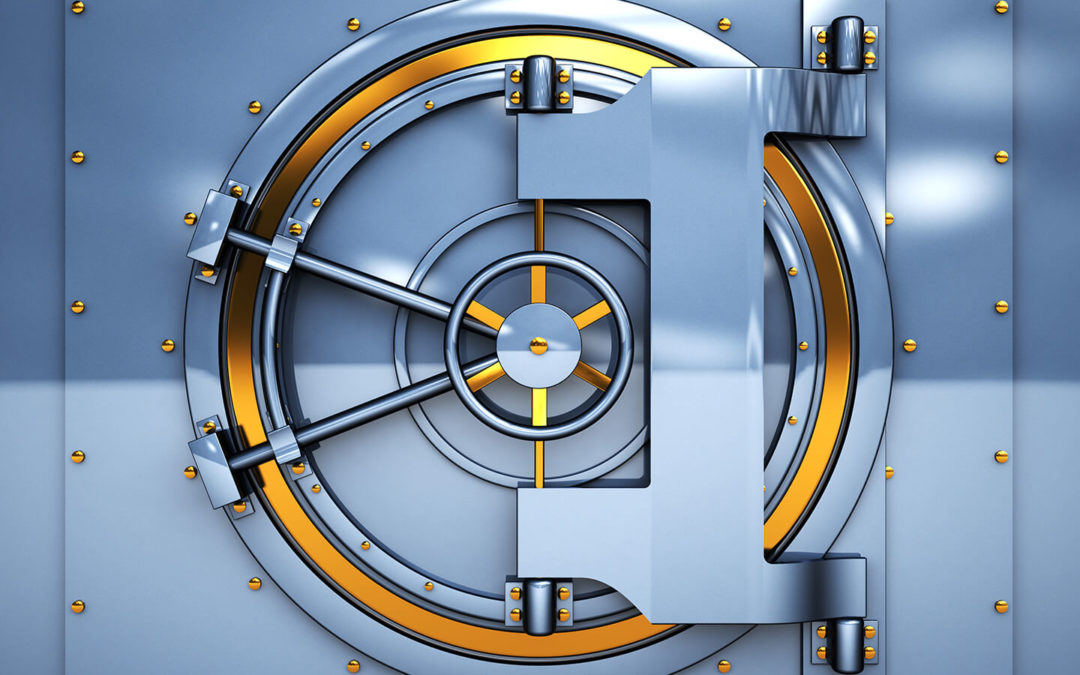Login

Are Investment Accounts Safe?
There are three basic types of banks. We are all familiar with the commercial bank—it is where you have your checking and savings account and maybe your mortgage or car loan. Commercial banks make their money by making loans. They use a combination of your savings deposits, CDs, and short term loans to make longer term loans, like mortgages. Commercial banks make money on the spread between what they pay you in interest (nearly nothing) and what someone pays them in interest (mortgages rates are about 5% right now). They make money on money that doesn’t belong to them. It’s a good business when it is done right.
Commercial Banks Provide Savings and Checking Accounts...and Loans
Commercial banks get into trouble if too many customers don’t pay back their loans and they lose that money. They still need to give you your savings back when you ask for it. If too many savings account customers want to take their money out at the same time, and the bank has too many losses from loans gone bad, then the bank becomes insolvent. The regulators take over the bank, and savings account customers are protected by FDIC insurance for amounts up to $250,000.
Custody Banks Hold Assets ... and Don't Make Loans
The second type of bank is the custody bank. Have you heard of State Street Bank? Ever wonder why they don’t have bank branches? They don’t make loans and they don’t offer traditional savings accounts. They are a custody bank and custody banks hold a variety of investment assets for clients for a fee. All pensions, 401k accounts, and brokerage assets are held by custody banks. So are the assets in mutual funds. So are personal investment accounts. It’s the biggest business you never heard of. They don’t have FDIC insurance because custody banks don’t have the legal right to use the money in your account.
Customer who had investment accounts (aka custody account) at Lehman Brothers when Lehman failed, received all of their money back because Lehman never had access to it. It didn’t matter if it was $250,000 or $25 million. Lehman made their money through fees on selling investment products but not on traditional loans like a commercial bank. Legally, the assets of customers and the assets of the bank itself are segregated.
Your investment assets in a custody account are safe from a bank failure, no matter how large, because your assets are never co-mingled with the bank. The most popular custody bank accounts for individuals are Fidelity Investments, Charles Schwab, trust banks, and brokerage companies such as Merrill Lynch. An specific investment that you own may lose value, but the account itself is safe.
Investment Banks Handle Very Large Transactions
The third type of bank is an investment bank. Confusingly, they don’t make much money from investment custody accounts, although most do offer that service. Their primary business is to be the middle man connecting large investors and large companies that want to raise money in the bond or stock market. Investment banks facilitate transactions between very large pools of money for a fee. This is most profitable business line for Goldman Sachs, Morgan Stanley, JP Morgan, etc. Some of the biggest innovations in the financial world are created at investment banks, and sometimes the biggest trouble starts here too.
Some large banks, like Bank of America and JPMorgan Chase, have a combination of all three types of banking business. What is important to know is who has access to your money and what is the downside risk. For commercial banks, it is limiting your account values to $250,000 to be covered under FDIC insurance. For custody banks, the risk is knowing the downside of the specific investments you own and not that the bank has access to your account.



